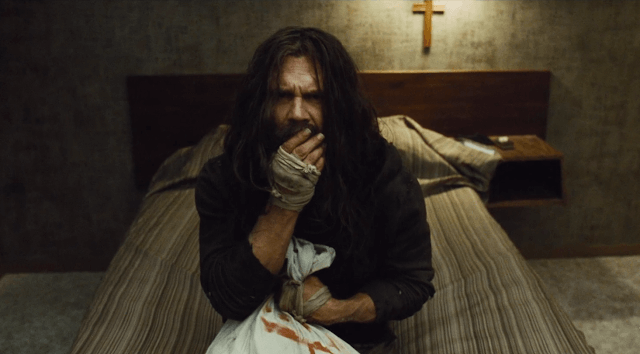Every time “Summer of 69” comes on the radio, my initial reaction (aside from nausea) is the thought that Bryan Adams must have heard a Bruce Springsteen song, tried to replicate it, and got everything entirely wrong. This same feeling arose in me whilst watching Spike Lee’s update on Park Chan-wook’s Old Boy.
Like in the original South Korean movie, Lee’s Old Boy tells the tale of a man who is mysteriously imprisoned in solitary confinement with no means of escape and no explanation as to who has taken him or why. Weeks, months and years pass until, just as suddenly, release is granted and a game of cat and mouse begins.
In Lee’s update, it is Joe Doucett (Josh Brolin) who has been held against his will and, whilst in captivity, has witnessed on TV that he is the prime suspect in the rape and murder of his ex-wife. On the run from the law, Doucett’s mind is set firmly on vengeance and tracking down those responsible for the death of this wife and the twenty years he has spent locked away – peculiarly, one of the perpetrators is more than willing to give clues of his identity, teasing Doucett along the way with hints.
In the much admired South Korean version of Old Boy (and the two accompanying films in the Vengeance Trilogy), Park highlights the overbearing futility of revenge and how such a mindset will invariably lead to eternal, and snowballing, suffering. As the film’s labyrinthine plot unfolds, the violence (and accompanying futility) reaches shocking and operatic levels – all of this, however, is missing in Lee’s rather anaemic and ill-considered remake.
One of the problems with the remake is the complete lack of purpose – it neither builds on nor says anything significantly different from the original film. Of the elements that Lee has cribbed wholesale from Park’s original, many have been either made disappointingly convoluted (the shocking twist in the Korean movie made sense within its own internal logic, here the twist comes in almost Scooby Doo-esque fashion with a few extra twists and turns thrown in for no reason other than confounding an audience), or simply watered down. Whilst the infamous hammer fight in the 2003 movie, famously replicating computer game visuals, was a stylised, visceral revelation when it debuted, Lee’s take feels gratuitous and an overlong, unnecessary retread – shallow feet treading in deep footprints. Like many of the other iconic moments replicated in this film, the original’s long shadow is felt and Lee seems incapable of escaping them with stylised choices of his own, preferring to direct via checklist.
Most confusing of all, however, is the performance of Sharlto Copley who has decided that the appropriate way to portray Machiavellian menace is to imitate Derren Brown. It’s a confusing approach to take and one which renders a bleakly violent film with an unintentionally humorous and camp undercurrent; the performance undermines even the smallest hint of credibility the movie could have had.
Ultimately, the remake is pointless – it’s too violent to find a wider audience than the subtitled original, and too pale an imitation to win fans already familiar with the title. It’s a film made for nobody with no purpose at all for existing from an artistic or marketing point of view. The worst film of Spike Lee’s career and, quite possibly, of 2013 too.


No comments
Post a Comment